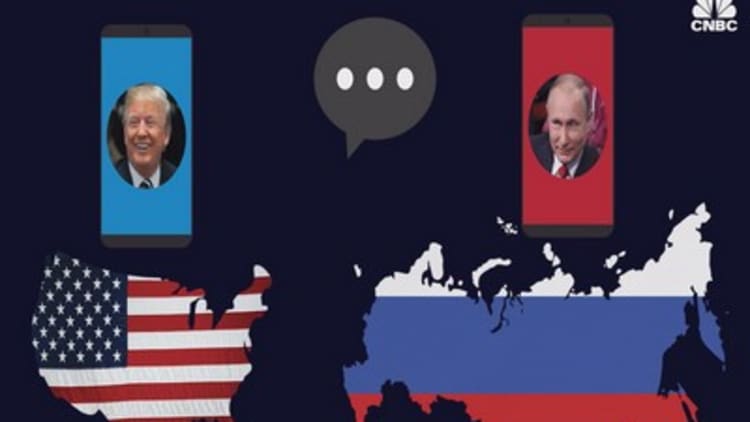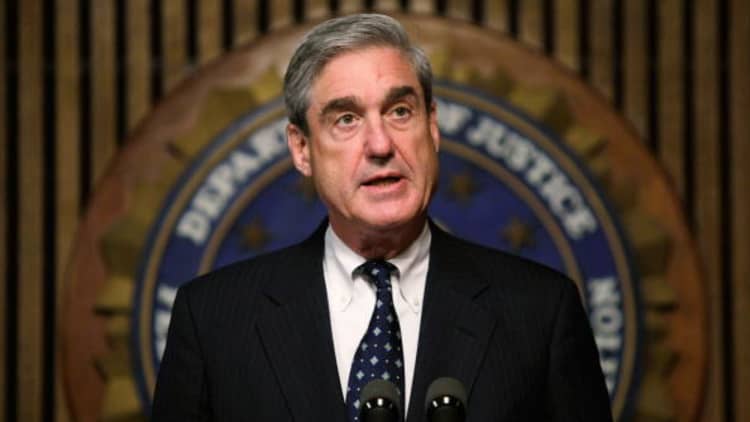Encrypted messaging services are an increasingly common way for users to keep their text messages private. Now, they could play a role in special counsel Robert Mueller's Russia probe.
CNBC reported Wednesday that Mueller's team is requesting that witnesses turn in their personal phones to inspect their encrypted messaging programs and potentially view conversations between associates linked to President Donald Trump. The conversations occurred on the messaging services WhatsApp, Confide, Signal and Dust, sources said.

Encryption helps jumble the content of a message into random data until it's received on the other end and the original message is compiled back together again. This means if anyone intercepts the message — a hacker or government spy service, for example — it's just jumbled characters and symbols. Keep in mind that this doesn't protect your messages from being seen if your device is ever compromised — if someone has access to your phone (or the person you're sending messages to) they can read the messages.
How to encrypt messages
If you're on an iPhone and texting to someone who also has an iPhone, your messages are already going to be secure thanks to the encryption keys Apple already keeps in iMessage. This isn't the case if you're sending a regular "green" bubble text message to another phone that isn't an iPhone, it's only the case with "blue" bubble messages between iPhones, iPads and Macs.
One go-to app for folks who want encrypted messages is Signal, available on iPhone and Android. First, you download the app, then register your phone number. On Android, you can even set it to be the default messaging app (though again, you'll want to make sure you're sending messages to someone who's also using Signal to ensure encryption).
Signal also has additional security features including options to block others from taking screenshots, disabling keyboards that learn from what you type and the option to set a password to open the app. There's an option to make messages disappear after five seconds, which is convenient if you're worried about someone going through your phone.
Finally, Signal shows you the "safety" number that you can compare with the person you're chatting to in order to make sure that the conversation is secure.
Facebook-owned WhatsApp is another option that works for Android and iPhone. Like iMessage, it also offers end-to-end encryption that theoretically keeps the contents safe from anyone outside the WhatsApp conversation.
WhatsApp doesn't require you to change any settings — everything is already encrypted by default. It also promises that it doesn't store any of the messages on its servers, which means your messages are kept locally on the phones they're sent and received from. WhatsApp also has a web interface, so you can chat from a web browser on your computer, too.
WATCH: Mueller wants witnesses personal phones inspected



